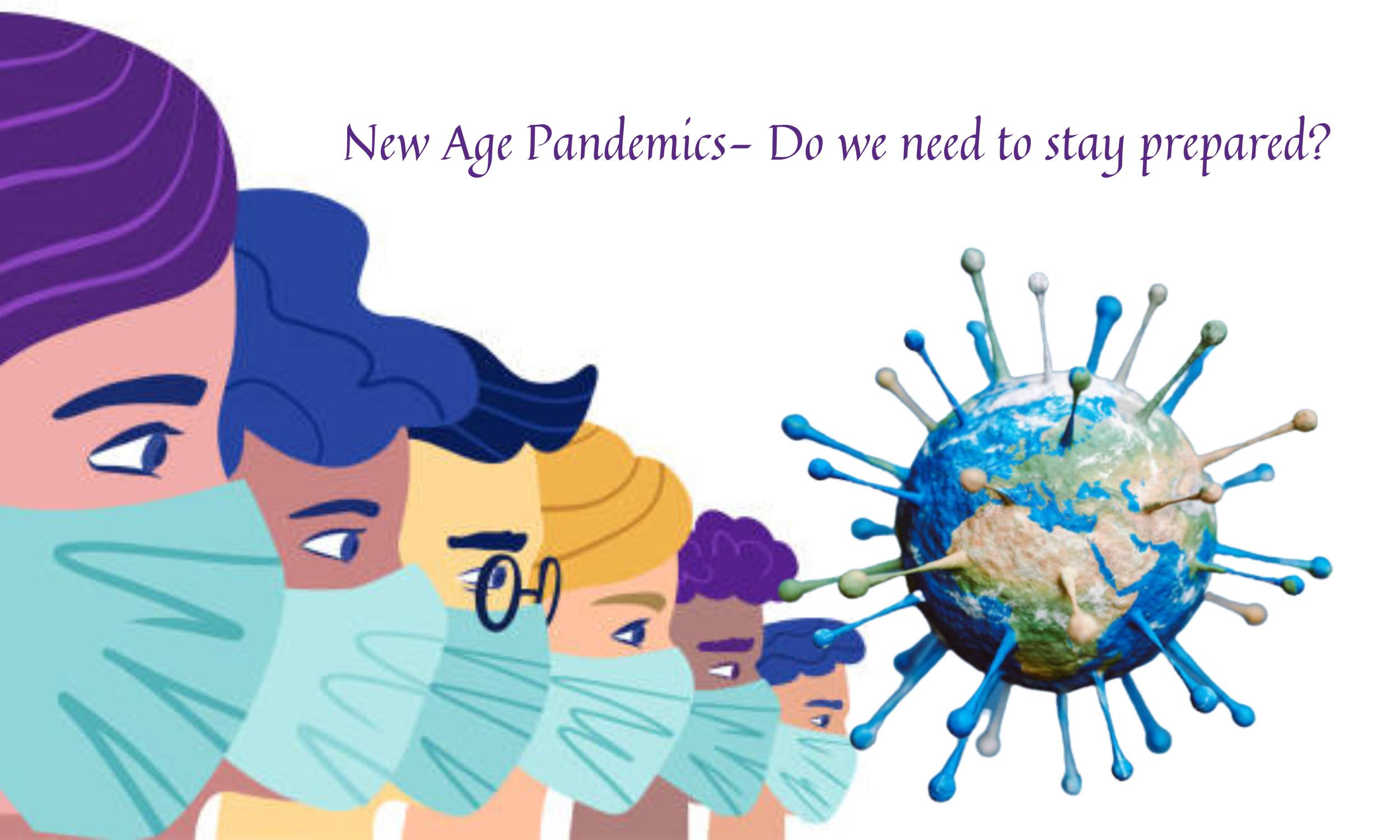The prospect of a superbug that could wipe out much of the human race sounds like the stuff of science-fiction novels, Hollywood movies or doomsday prophets. However, such a global pandemic might not be as unlikely as it seems.
Has Covid-19 done with us or something else is lurking in the shadow? The COVID-19 pandemic may be the deadliest viral outbreak the world has seen in more than a century. But statistically, such extreme events aren’t as rare as we may think, asserts a new analysis of novel disease outbreaks over the past 400 years. Large pandemics like COVID-19 and the Spanish flu are relatively likely. Is the age of pandemic over or should be ready for new age pandemic attacks in the future?
“Outbreaks are inevitable. But pandemics are optional.”
This quote from Larry Brilliant, a renowned American epidemiologist and philanthropist who played a key role in the World Health Organization’s (WHO) efforts to eradicate smallpox, makes us think.
As we all know pandemic is an outbreak of global proportions. It happens when infection due to a bacterium or virus becomes capable of spreading widely and rapidly. Though medical science has advanced rapidly in recent years, but it is unlikely ever to offer full protection from a possible pandemic because of the novel nature of the diseases involved. Humans would not have natural immunity to a newly mutated disease, meaning that it could have severe effects after spreading between people.
Does our body store the secret to combat diseases?
You can develop resistance naturally. When your body is exposed to a virus or bacteria, it makes antibodies to fight off the infection. When you recover, your body keeps these antibodies. Your body will defend against another infection. A strong immune system can prevent or limit infection, by destroying the causative organism quickly.
Your immunity is your sword!
Regular monitoring or Immunity check helps-
- Complete Blood Count (CBC) including the white blood cells, which is usually elevated in infections
- Erythrocyte sedimentation rate (ESR), which is generally associated with inflammation in response to an injury or infection in the body
- Ferritin and Iron deficiency, associated with anemia and low immunity
- Vitamin D deficiency, associated with a higher risk of infections
- Immunoglobulin E (IgE), a type of antibody that helps to protect against microorganism
- Electrolytes values can help determine electrolyte imbalance in the body, a common condition in the elderly population due to polypharmacy
- Liver, heart, and kidney check is vital for patients suffering from chronic conditions to keep a check on disease control and preventing related complications.
A healthy balanced diet can ensure a robust immune system that can resist any onslaught by the virus. A certain amount of particular nutrient saturates into cells and prevents any kind of nutritional deficiency. Individuals consuming well-balanced diets appear to be safer with better immune systems and lower incidence of chronic diseases and infections.
Stay healthy!
References
- https://www.ncbi.nlm.nih.gov/pmc/articles/PMC2002527/
- https://globalhealth.duke.edu/news/statistics-say-large-pandemics-are-more-likely-we-thought
- https://www.iavi.org/iavi-report/is-the-next-pandemic-preventable
- https://www.manipalhospitals.com/blog/your-immunity-is-your-sword
- https://www.ncbi.nlm.nih.gov/pmc/articles/PMC7306972/

